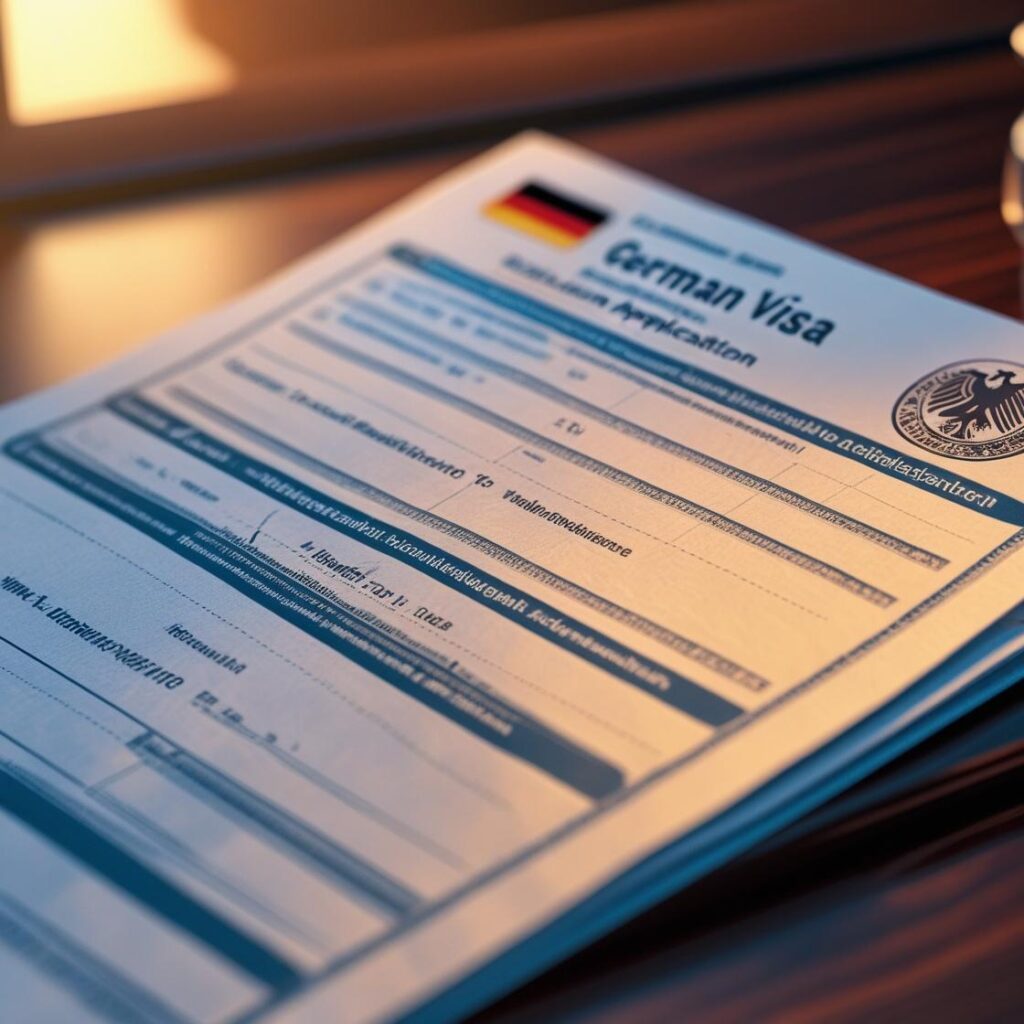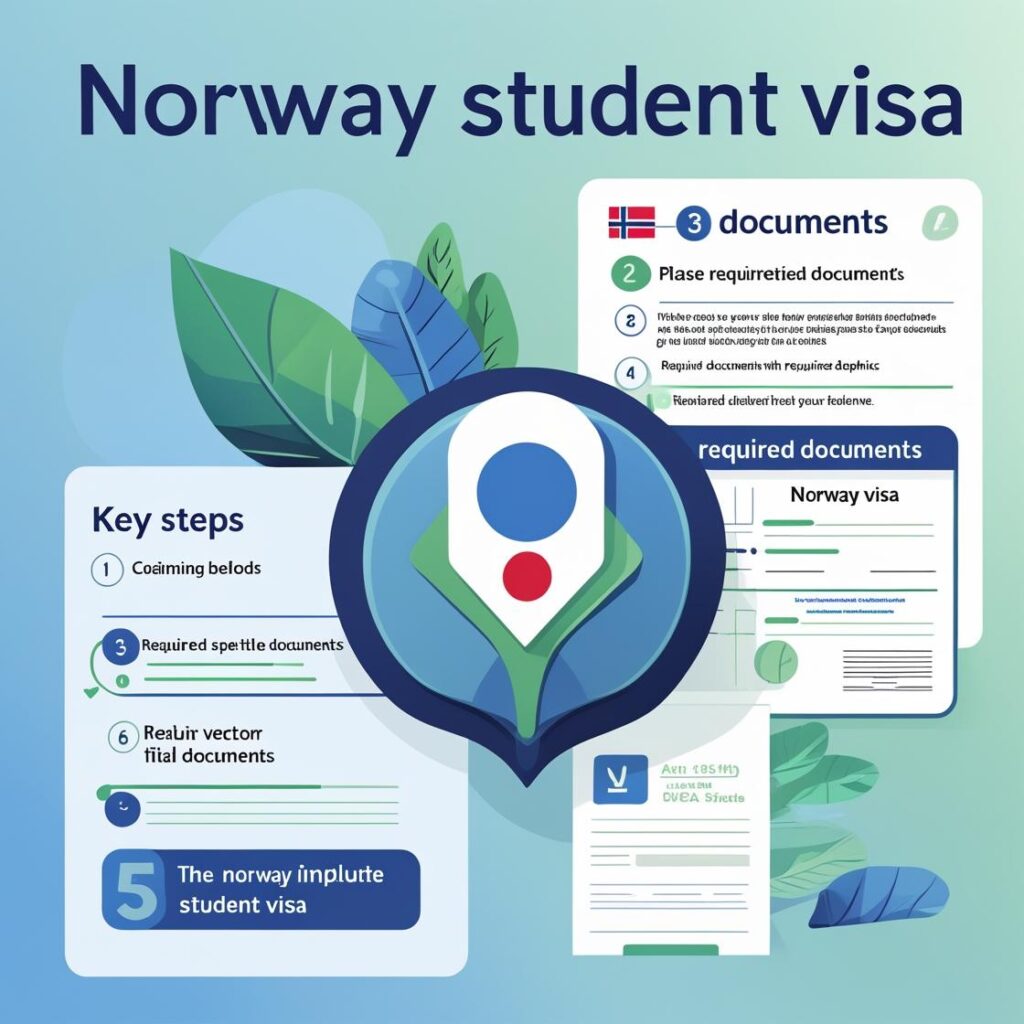Starting your educational journey in Bahrain offers unique academic and cultural experiences. Whether you plan to attend a local university or enroll in a specialized training program, obtaining the proper visa is your first critical step. This guide outlines everything you need to know—eligibility, documentation, fees, and tips—to successfully secure a Bahrain student visa.
اقرأ أيضاً: تأشيرة ألمانيا | كيفية الحصول على تأشيرة طالب؟
1. Overview of Bahrain’s Education Landscape
Bahrain is home to a diverse higher education system that includes public universities, private institutions, and international branch campuses. The University of Bahrain, established in 1986, ranks among the region’s top public universities. Meanwhile, universities such as Ahlia University, the American University of Bahrain, and various technical colleges offer a broad range of undergraduate and postgraduate programs.
اقرأ أيضاً: تأشيرة كندا | كيفية الحصول على تأشيرة طالب؟
Visiting students often choose Bahrain for its strategic location in the Gulf Cooperation Council (GCC), relatively low cost of living compared to neighboring countries, and a growing emphasis on research and innovation. The Bahraini government continues to invest in educational infrastructure, making the country an increasingly popular destination for international scholars.
اقرأ أيضاً: تأشيرة كولومبيا | كيفية الحصول على تأشيرة طالب؟
2. Types of Student Visas in Bahrain
Bahrain issues several categories of student visas based on program length and academic level:
اقرأ أيضاً: تأشيرة النرويج | كيفية الحصول على تأشيرة طالب؟
- Short-Term Student Visa: For language courses, summer schools, or exchange programs under six months.
- Long-Term Student Visa: Valid for the full duration of degree programs, typically one to four years.
- Scholarship Visa: Granted to students with government or institutional scholarships; may include additional benefits such as health coverage or allowances.
Each visa type has its own application process and validity period. Be sure to choose the one that matches your academic program’s duration and funding source.
3. Eligibility Criteria for Student Visas
To qualify for a Bahraini student visa, applicants must meet the following requirements:
- Admission Letter: A confirmed acceptance letter from a recognized Bahraini educational institution.
- Minimum Academic Qualifications: Proof of previous academic achievements (high school diploma for undergraduates, bachelor’s degree for postgraduates).
- Financial Means: Evidence that the student can cover tuition fees and living expenses (bank statements, scholarship letters).
- Age and Health: Generally, applicants should be between 17 and 35 years old and free from communicable diseases.
Special cases, such as sponsored students or those under government scholarship, may have relaxed financial requirements but must still satisfy academic and health conditions.
4. Required Documentation
Preparing a complete document package is key to a smooth application. Standard requirements include:
- Valid passport (at least six months’ validity beyond the visa expiry date).
- Two recent passport-size photographs (white background).
- Official admission letter from the Bahraini institution.
- Proof of accommodation in Bahrain (university dorm booking or rental agreement).
- Bank statements showing sufficient funds or scholarship award letters.
- Medical fitness certificate, including blood test results and chest X-ray.
Tip: Always provide certified English or Arabic translations for documents issued in other languages. Originals may be requested for verification, so keep them handy.
5. Application Process: Step-by-Step
Follow these steps to apply for your Bahrain student visa:
- Receive Acceptance: Secure your admission letter and all supporting documents from your institution.
- Complete Online Form: Access the Bahrain eVisa portal and fill in the student visa application form accurately.
- Upload Documents: Scan and upload your passport, photos, admission letter, and other required files.
- Pay Visa Fee: Use a credit card to pay the non-refundable visa application fee.
- Submit Application: Review all entries, then submit and note your application reference number.
- Await Approval: Processing typically takes 5–10 working days for long-term visas.
- Receive eVisa: Upon approval, download the eVisa document and print a copy to present at entry.
Always check the current processing times on the eVisa portal, as these can vary by season and application volume.
6. Visa Fees and Processing Times
Visa fees depend on the visa category and length of stay. Typical ranges include:
- Short-Term Student Visa (up to 6 months): BHD 20–30.
- Long-Term Student Visa (1–4 years): BHD 50–75 per year.
- Medical and insurance fees: Additional BHD 10–20.
Processing times also vary:
- Express Service: 3–5 working days (additional fee applies).
- Standard Service: 7–10 working days.
Plan ahead to avoid delays, especially during peak academic enrollment periods (July–September).
7. Health Insurance and Medical Requirements
All international students must have valid health insurance covering their stay in Bahrain. Options include:
- University Health Plans: Many institutions offer group policies tailored for students.
- Private Insurance: International companies with coverage in Bahrain.
- National Health Insurance: Bahraini schemes available for long-term residents.
Medical clearance involves a mandatory health check at a GCC-approved clinic. The examination typically includes:
- Blood tests for infectious diseases (HIV, Hepatitis B and C).
- Chest X-ray for tuberculosis screening.
- General physical examination.
Ensure you complete the medical exam no more than 3 months before your application to comply with validity requirements.
8. Work Rights and Part-Time Opportunities
Bahrain allows student visa holders to work part-time under certain conditions:
- Maximum Hours: Up to 20 hours per week during term time, full-time during official breaks.
- Approval Letter: A no-objection certificate (NOC) from your university, confirming your enrollment and academic status.
- Work Permit: Apply through the Labour Market Regulatory Authority (LMRA) after securing a job offer.
Part-time roles in areas like tutoring, hospitality, and research assistantships can help offset living costs and provide valuable experience.
9. Visa Renewal and Extension
For multi-year programs, you’ll need to renew your visa annually. The extension process includes:
- Academic Confirmation: A letter from your institution verifying your enrollment and progress.
- Updated Bank Statements: Proof of continued financial support.
- Medical Re-examination: Repeat the health check if the initial certificate is older than one year.
- Online Renewal: Use the eVisa portal to submit the required documents and pay the renewal fee.
Apply at least one month before your current visa expires to avoid fines or interruption in your studies.
10. Tips for a Successful Application Process
- Start Early: Gather documents and complete medical exams well in advance.
- Double-Check Details: Ensure names, dates, and passport numbers match across all forms.
- Maintain Clear Records: Keep copies of every submission and correspondence.
- Use Official Channels: Submit applications and payments only through the Bahrain eVisa portal.
- Seek Guidance: Liaise closely with your university’s international office for personalized support.
By following these best practices, you can minimize errors and streamline your visa approval.
Conclusion
Securing a Bahrain student visa is a structured process that rewards careful planning and attention to detail. With the right documentation, timely medical checks, and an understanding of the online application system, you’ll be well on your way to studying in one of the Gulf’s most dynamic educational hubs. Good luck on your academic journey!



